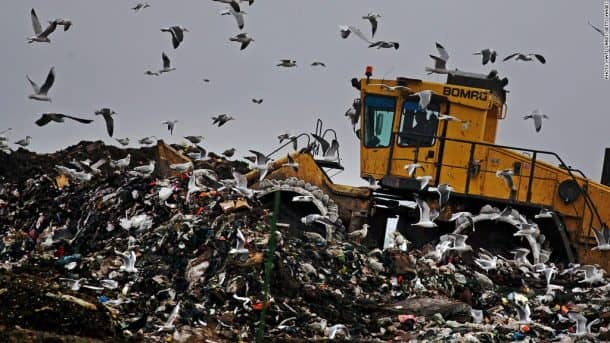James Howells is an IT worker from the UK and used to mine bitcoins on his personal laptop back in 2009. He had a collection of around 7,500 bitcoins by the time he was done. Howells said, “after I had stopped mining, the laptop I had used was broken into parts and sold on eBay.” But he kept the hard drive he used to collect the bitcoins, “so if bitcoin did become valuable one day, I would still have the coins I mined.”

However, in 2013, a tragedy struck. He accidentally placed the drive into a waste bin at his local landfill site in Newport, South Wales, where it got buried. Now he knows exactly where his coins are but the city council won’t let him retrieve them as it is against the law.

With the current prices of bitcoin puts the worth of his coins north of $127 million. Garbage has been poured onto that site for the past 4 years now and makes it a very difficult process to retrieve his hard drive. Howells knows that “A modern landfill is a complex engineering project and digging one up brings up all sorts of environmental issues, such as dangerous gasses and potential landfill fires. It’s a big, expensive and risky project.”
Even though Howells is aware of all that, he still wants to find his lost bitcoins. A council spokesperson said in an interview that their offices have been “contacted in the past about the possibility of retrieving a piece of IT hardware said to contain bitcoins,” but listening to their requests would have a “huge environmental impact on the surrounding area.”

The landfill contains about 350,000 tons of waste and about 50,000 tons are added each year. The officials pointed out that the device might not work after years of exposure to weighty and possibly toxic waste. “It is likely that the hardware would have suffered significant galvanic corrosion due to the presence of landfill leachates and gases,”
The operation itself would cost millions but Howells has his eyes on the prize and he needs permission to find his lost bitcoins as landfills are not open to public and trespassing is a criminal offense. Howells still follows the changes in bitcoin’s price, “but that’s not because I’m obsessed with the price because of my lost coins. I have multiple tickers running with prices in different fiat currencies,”

About his plans for what he would do if he was able to recover his coins, Howells said “Who knows for sure? I probably would have sold 30 or 40 percent in 2013 to invest in property and other cryptocurrencies.” If the bitcoin continues to rise the way it is going now, the city council might allow a search after all, and Howells said: “And obviously, they would get a nice percentage as a gift or donation.”
I guess we will have to wait and see how the story unfolds. Will Howell get a chance to retrieve his lost bitcoins or will the city council stand their ground? Time will tell.


